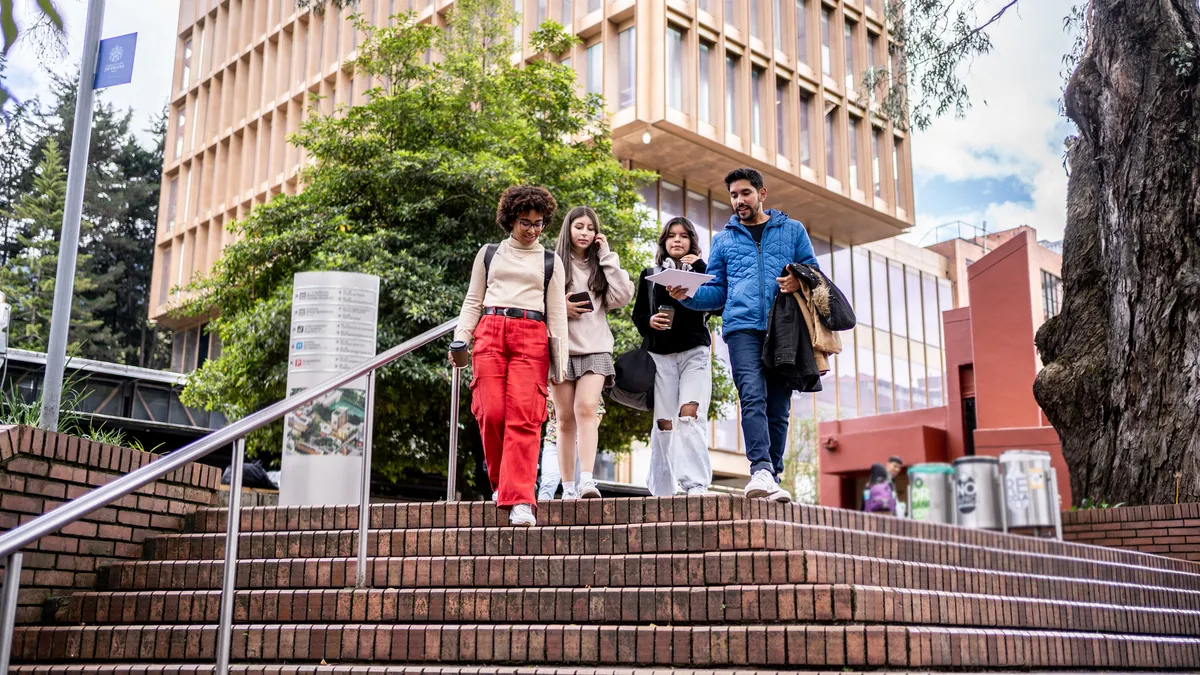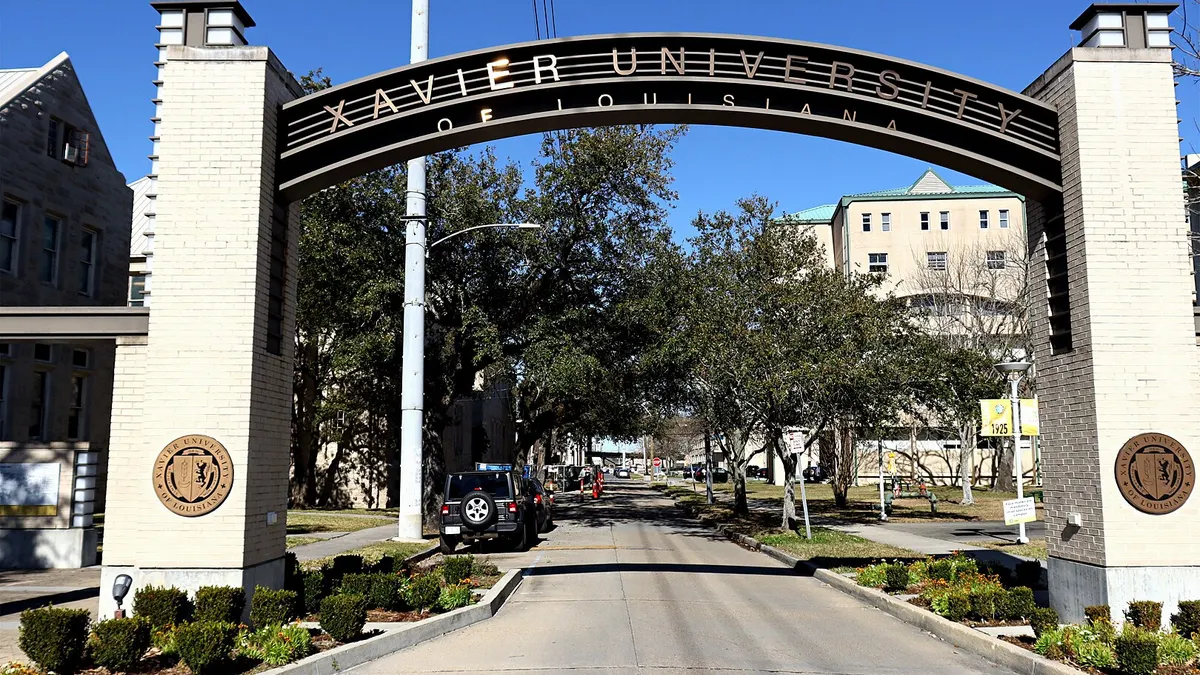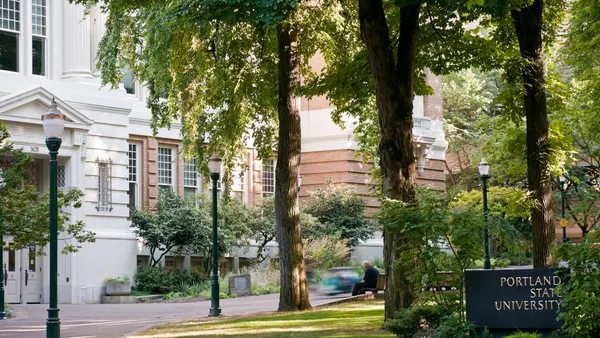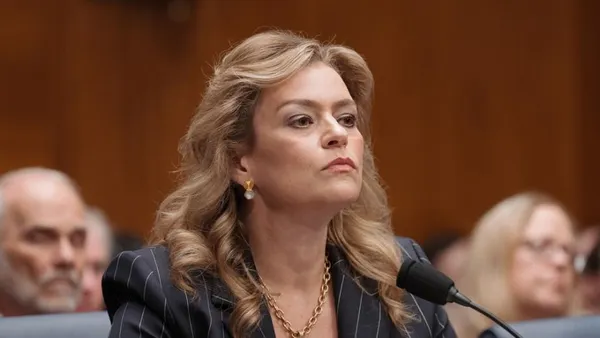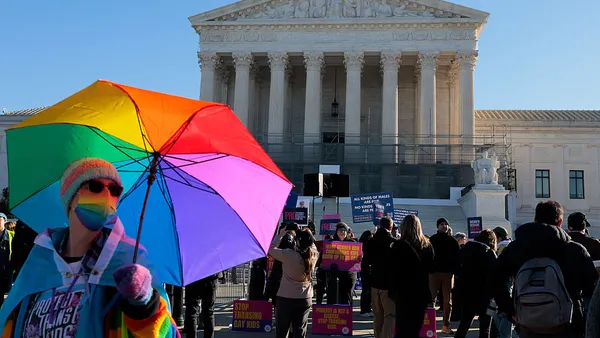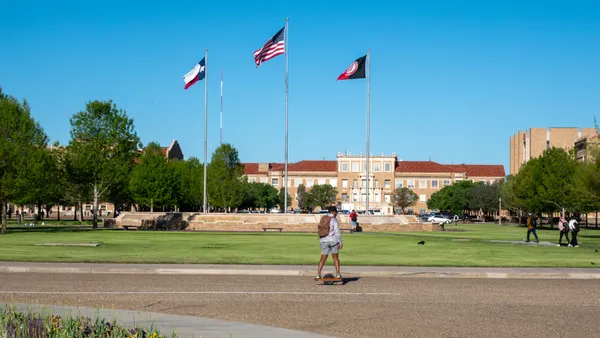Dive Brief:
- A federal judge on Tuesday temporarily blocked University of Texas System officials from enforcing a state law that bans free speech and expression on public campuses between the hours of 10 p.m. and 8 a.m.
- The Foundation for Individual Rights and Expression sued leaders of the UT system in September on behalf of student groups who argued the law violated their First Amendment rights.
- U.S. District Judge David Alan Ezra, a Reagan appointee, found that plaintiffs raised “significant First Amendment issues” with the law and its application, and he granted a preliminary injunction on enforcement while the case plays out.
Dive Insight:
Texas passed SB 2972, earlier this year in the wake of 2024’s wave of pro-Palestinian protests on U.S. campuses.
“In April 2024, universities across the nation saw massive disruption on their campus,” state Sen. Brandon Creighton, the primary author of the bill, wrote in a statement of intent. “Protesters erected encampments in common areas, intimidated other students through the use of bullhorns and speakers, and lowered American flags with the intent of raising the flag of another nation.”
In late September, Creighton, was named chancellor and CEO of the Texas Tech University System.
Along with specifically prohibiting First Amendment-protected activity overnight, the law also bars the campus community from inviting speakers to campus, using devices to amplify speech and playing drums or other percussive instruments during the last two weeks of any term.
In its complaint, FIRE called the law "blatantly unconstitutional.”
“The First Amendment doesn’t set when the sun goes down,” FIRE senior supervising attorney JT Morris said in a September statement. “University students have expressive freedom whether it’s midnight or midday, and Texas can’t just legislate those constitutional protections out of existence.”
Ezra agreed in his ruling.
“The First Amendment does not have a bedtime of 10:00 p.m.,” the judge wrote. “The burden is on the government to prove that its actions are narrowly tailored to achieve a compelling governmental interest. It has not done so.”
In his ruling, Ezra wrote that the law’s free speech restrictions were not content-neutral and so must survive a strict legal test for the government to show that the law is the least restrictive possible to achieve a “compelling” goal.
The judge pointed to public posts by Texas Gov. Greg Abbott and the bill’s statement of intent, both decrying the pro-Palestinian protests. Abbott described the protests as antisemitic and called for the arrest and expulsion of protestors.
“The statute is content-based both on its face and by looking to the purpose and justification for the law,” Ezra wrote.
Ezra also highlighted that the statute carved out an exception for commercial speech in his ruling.
“Defendants betray the stated goal of preventing disruption and ensuring community safety by failing to expand the Bans to commercial speech,” he wrote. “Students can engage in commercial speech that would otherwise violate the Bans simply because it is not ‘expressive activities,’ no matter how disruptive.”
In response to the law, the University of Texas at Austin adopted a more limited version of the policy that only banned overnight expressive activities in its common outdoor area that generate sound to be heard from a university residence.
However, Ezra concluded the pared-down policy wasn’t enough to protect students’ constitutional speech rights, as UT-Austin could change it or enforce it subjectively.
“The threat of prosecution arises not only from UT’s adopted policy but also from the legislative statute,” the judge wrote. “As adopted, UT Austin is not currently in compliance with the statute, and at any point could change or be instructed to change its policies to comply with the law.”
FIRE cheered the injunction on Tuesday.
“We’re thankful that the court stepped in and halted a speech ban that inevitably would’ve been weaponized to censor speech that administrators disagreed with,” FIRE Senior Attorney Adam Steinbaugh said in a statement.
In its lawsuit, the free speech group has asked the judge to permanently block the law’s enforcement.




